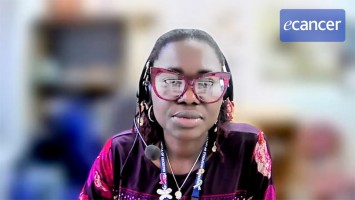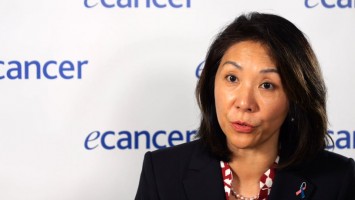We’ve convened this meeting because we think it’s important to bring people together from around the world to try and improve access and equity of access to diagnosis and treatment of cancer at a global level. As far as I’m aware there wasn’t a meeting like this that currently happens and so we thought that it was important to put it on the map as increasingly people are becoming interested in this area. And also I would say particularly the younger generation of healthcare professionals are particularly interested in doing their part. I think sometimes people don’t know how they can help so one of my aims of this meeting is that people can learn how best to collaborate and how we can help share the skills and knowledge that we have with people in other parts of the world.
Do you feel we also need to look to patients on a personal level?
Absolutely. I think that in low resource settings we have to think outside the box in how we can use the resources that we have to deliver cancer care. Cutting and pasting what we do in high income countries, as has been said today, and putting that into a low resource setting is not appropriate. Also we have a fantastic opportunity to learn how things can potentially be done better than we do them here and a better, more efficient use of resources. So, yes, this should be multidisciplinary; it’s going to involve people from all kinds of fields, from health economics, policy, anthropology, medicine, nursing, pharmacology, this involves everyone. No one group of people is going to be able to solve this problem, it’s a truly collaborative effort.
We’ve heard some novel ways of delivering education, some of which are delivered through ecancer and through other platforms. This is going to be the way forward.
What are the next steps?
There are some things that we can be insightful and we can share practice on what we’ve done in high income countries. So we know, for example, that lung cancer, one of the world’s most preventable cancer, we know that the vast majority, I think it’s 80%, of the world’s billion smokers live in low and middle income countries. We know that some of the most useful policies are fiscal policies to reduce smoking rates. So some policies like that that we have in high income countries, plain packaging for cigarettes etc., can be adapted to these settings but I also think that they also have unique problems that we don’t have here. There are different cultural settings, stigma in different ways associated with cancer and also co-pathology, particularly with infectious diseases such as HIV. So whilst we can learn from what we do in this country we also need to have other ways of thinking about this and we can also learn huge amounts from our colleagues in low resource settings.
What is your take home message?
A meeting like this, I hope, has been a platform for education, has been a platform to raise awareness, has been a platform for people to form collaborative links with low resource settings. I hope that it’s been inspiring, particularly for the young generation of healthcare professionals of the future so that they can form life-long partnerships in these settings.








